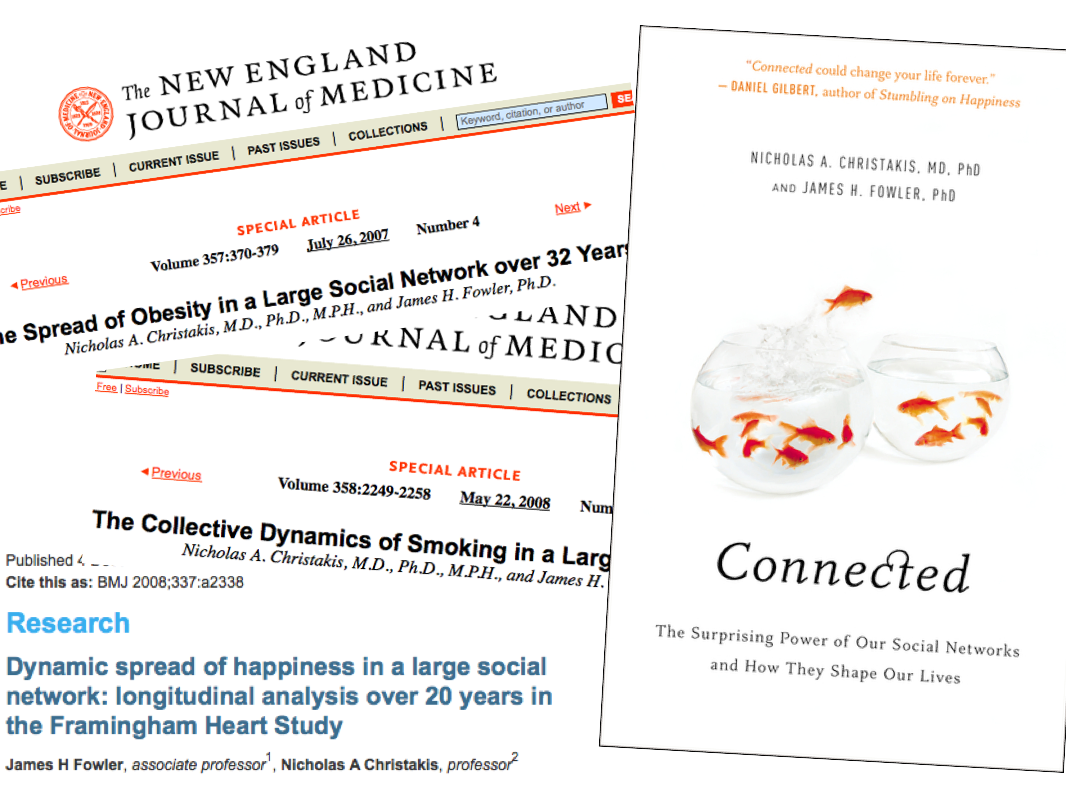Future Now
The IFTF Blog
Contagion health continues to spread
Over the last couple of years, we've been interested in the idea that health spreads—for better or worse—through our social networks, and the tremendous potential this understanding has for designing networked-based interventions for optimized health results. Nicholas Christakis and James Fowler have published some seminal work in this area, using the rich data available from the Framigham Heart Study.

We were delighted to have James as our keynote speaker at the Health Horizons Conference in June, during which he shared with us some of their latest research on social network sensors for early detection of contagious outbreaks, which is based on their study of a 2009 outbreak of the flu at Harvard.
One of our other forecasts this year focuses on optimizing health spans, or living healthier longer, so I was intrigued by the recent headline, "Can good friends help you live longer?" on the Stanford Medical School blog, Scope. The post reported on the recent publication in PLoS of a "meta-analytic review [that] was conducted to determine the extent to which social relationships influence risk for mortality, which aspects of social relationships are most highly predictive, and which factors may moderate the risk."
The Editors' Summary of the PLoS article starts with the assumption that, "the modern way of life in industrialized countries is greatly reducing the quantity and quality of social relationships. . . . There is reason to believe that people are becoming more socially isolated." While population shifts and demographic changes (eg, "Many people in these countries no longer live in extended families or even near each other. . . . Many also delay getting married and having children. Likwise, more and more people of all ages in developed countries are living alone, and loneliness is becoming increasingly common.") do support this premise, I was troubled that the article does not seem to acknowledge the role of online social networks in bridging geographic barriers and creating new opportunities for social relationships.
Nevertheless, the study's findings are interesting. They indicate that,
The influence of social relationships on the risk of death are comparable with well-established risk factors for mortality such as smoking and alcohol consumption and exceed the influence of other risk factors such as physical inactivity and obesity. . . . Although further research is needed to determine exactly how social relationships can be used to reduce mortality risk, physicians, health professionals, educators, and the media should now acknowledge that social relationships influence the health outcomes of adults and should take social relationships as seriously as other risk factors that affect mortality . . .
The Scope piece cites two other studies that support these findings.
My take-away? We should all consider adding "Maintain strong social relationships!" to the list of the most commonly recited health behavior imperatives—"Quit smoking! Lose weight! Exercise more!" Not a bad idea, especially if our friends also happen to engage in these healthy behaviors.
--Discuss this post on Twitter @IFTFHealth



